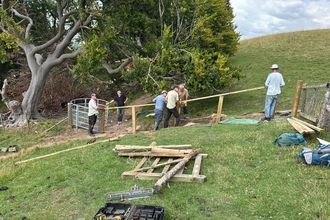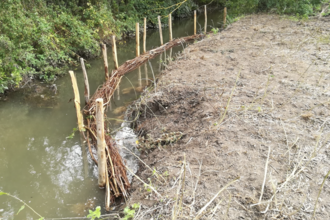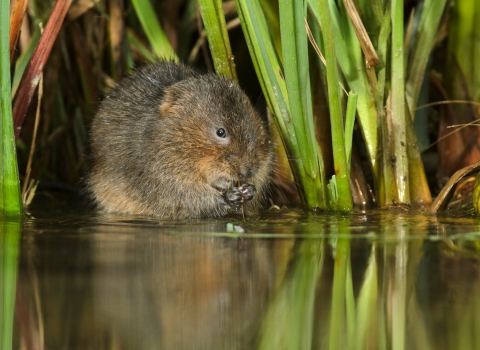Awareness has been growing around the distressing state of one of our regions most important freshwater habitats - the chalk streams. With around 85% of the global habitat occurring in the UK, and most in the south of England, these amazing waterways have been garnering a lot of attention due to very low flows, and in some cases their complete disappearance.
The Rivers Trust, supported by conservation organisations including our neighbours Herts & Middlesex Wildlife Trust, published their 'Chalk Streams in Crisis' report in June, which makes for concerning reading. On our own patch, the Cam Valley Forum has just published their River Cam Manifesto - a call to action for all of us who rely on these amazing waterways and want to see them thrive. The Observer covered the story on 24 August.
In Cambridgeshire, our chalk streams are fed by aquifers - permeable rock that holds rainfall which has seeped into the ground - and are also used to provide drinking water for much of the population. The chalk streams provide precious habitat for iconic species including water voles, kingfishers and brown trout, and are vital tributaries of the River Cam, which has recently seen its lowest flow on record for May, and, according to figures released by the Environment Agency, was at just 33% of its average flow in July.
"We need a radical and urgent change in our use of water and stewardship of water resources.”
Many of the chalk streams that still appear to be flowing are actually artificially maintained by water being pumped in at their headwaters, or by water treatment plants releasing clean water at points along their length. Though this is good in the short term for the wildlife that lives there, as it ensures that their habitat doesn't dry up completely, it clearly points to a long-term problem. As Ruth Hawksley, Water for Wildlife Officer for our Wildlife Trust, says "[Chalk streams] are very special, fragile habitats, and they’re currently at the mercy of a pump and possibly a power cut. We need a radical and urgent change in our use of water and stewardship of water resources.”
The demand for water at this time of year is very high anyway, and dry winters have meant the aquifers have not been naturally replenished to sufficient levels to keep the streams flowing naturally. We can all do our part in cutting down our water use, and valuing this precious resource that we share with the wildlife that needs these chalk streams to survive.
However, the long term provision of water in this area is clearly an issue that needs robust solutions - especially given the Oxford-Cambridge Arc plans that propose a million new homes in this catchment, all of which will be drawing from the same resource. Climate chaos also means that we are more likely to have more frequent unusual weather, which could mean more regular dry winters - and a compounding of an already serious problem.
The Environment Agency, the government and the water companies need to put proposals together quickly, and outline the ways in which they will manage these mounting problems, for the sake of all the wildlife, including us, that rely on the water supplies in one of the driest areas of the country.



